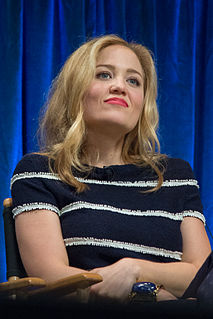A Quote by Paulo Coelho
Sometimes it's better to leave things as they are, he thought to himself, and decided to say nothing.
Related Quotes
The old grey donkey, Eeyore stood by himself in a thistly corner of the Forest, his front feet well apart, his head on one side, and thought about things. Sometimes he thought sadly to himself, "Why?" and sometimes he thought, "Wherefore?" and sometimes he thought, "Inasmuch as which?" and sometimes he didn't quite know what he was thinking about.
People say strange things, the boy thought. Sometimes it's better to be with the sheep, who don't say anything. And better still to be alone with one's books. They tell their incredible stories at the time when you want to hear them. But when you're talking to people, they say some things that are so strange that you don't know how to continue the conversation.
Wine makes a man better pleased with himself. I do not say that it makes him more pleasing to others. Sometimes it does. But the danger is, that while a man grows better pleased with himself, he may be growing less pleasing to others. Wine gives a man nothing. It neither gives him knowledge nor wit; it only animates a man, and enables him to bring out what a dread of the company has presented.
I decided that we'd have to take our chances with the law and get the hell out of Baltimore. I thought of seeking asylum in Canada or Australia or England, but I didn't want to leave the United States, because for better or worse I'm an American, and this is my land; so I decided to fight it out on home ground, and finally we hit upon Hawaii, because of the liberal atmosphere created by its racial admixture, and because of its relatively large population of Buddhists, who are largely nontheistic.
They leave things behind sometimes, the guests. A bottle of scent. A crumpled handkerchief. A pearl button that fell off a dress and rolled under a bed. And sometimes they leave other sorts of things. Things you can't see. A sigh trapped in a corner. Memories tangled in the curtains. A sob fluttering against the windowpane like a bird that flew in and can't get back out. I can feel these things. They dart and crouch and whisper.
My husband is my most ruthless critic... sometimes he will say, 'It's been said better before.' Of course it has. It's all been said better before. If I thought I had to say it better than anybody else, I'd never start. Better or worse is immaterial. The thing is that it has to be said; by me; ontologically. We each have to say it, to say it our own way. Not of our own will, but as it comes out through us. Good or bad, great or little: that isn't what human creation is about. It is that we have to try; to put it down in pigment, or words, or musical notations, or we die.
It's good to do things that are out of the norm. I'm a creature of habit and I like to stay in my own little comfort zone, but you have to reach out of that sometimes. And when you do that, you grow. And growth is what we all need and what we all strive for because we want to get better and better and better each day. And that's one of the things that I say to myself as far as a ritual that I have every day: "What can I do today to make it better than it was yesterday?"
There is nothing more terrible, I learned, than having to face the objects of a dead man. Things are inert: that have meaning only in function of the life that makes use of them. When that life ends, the things change, even though they remain the same. […] they say something to us, standing there not as objects but as remnants of thought, of consciousness, emblems of the solitude in which a man comes to make decisions about himself.




































